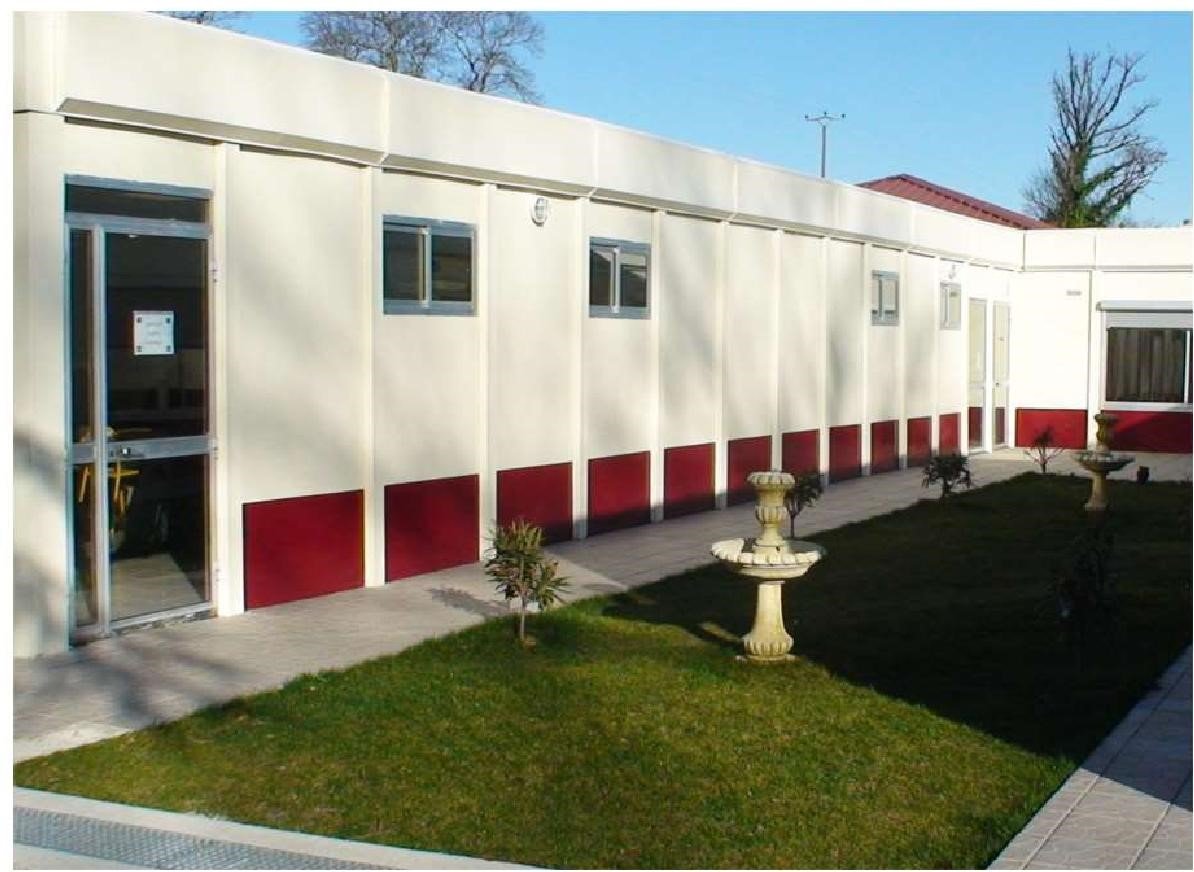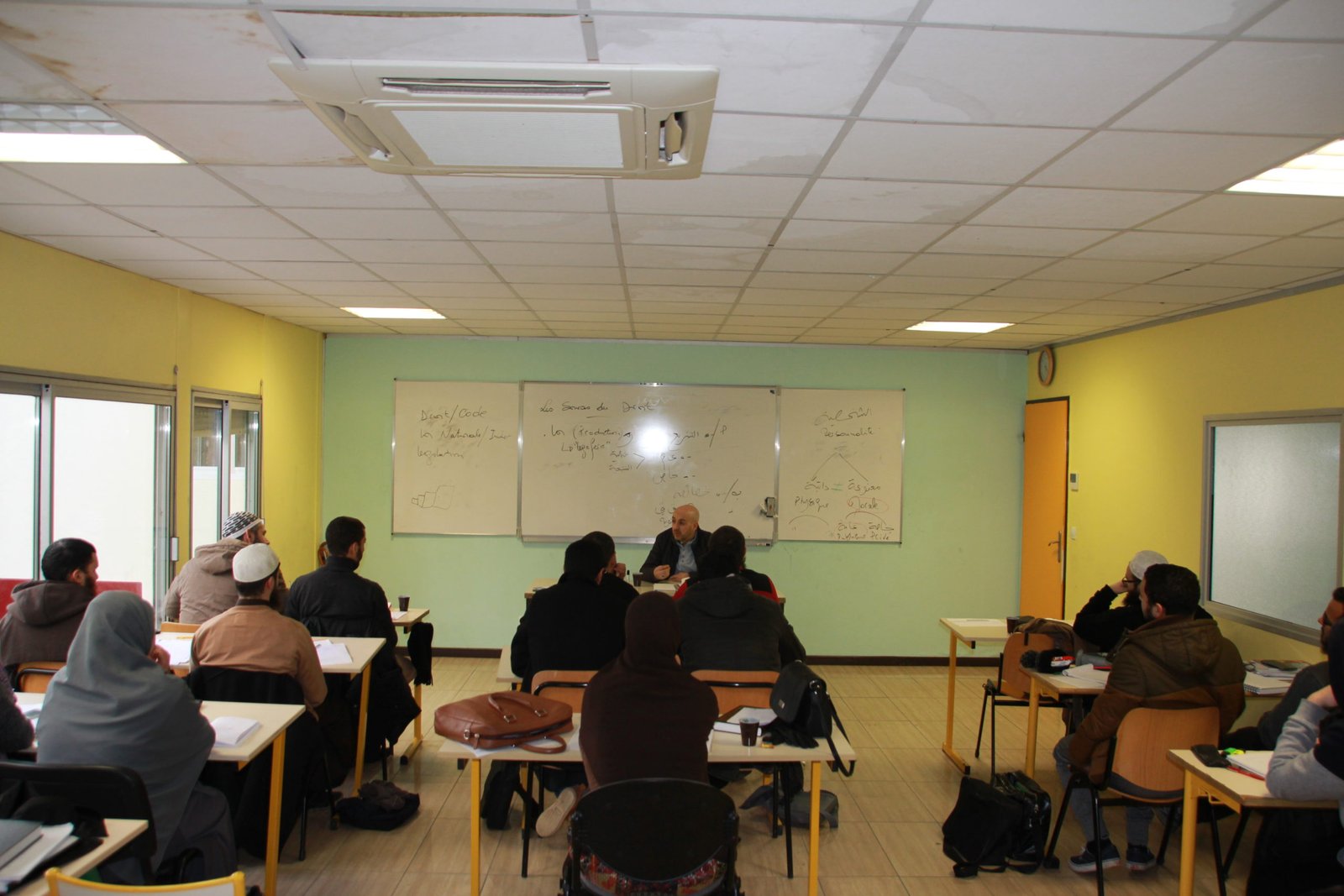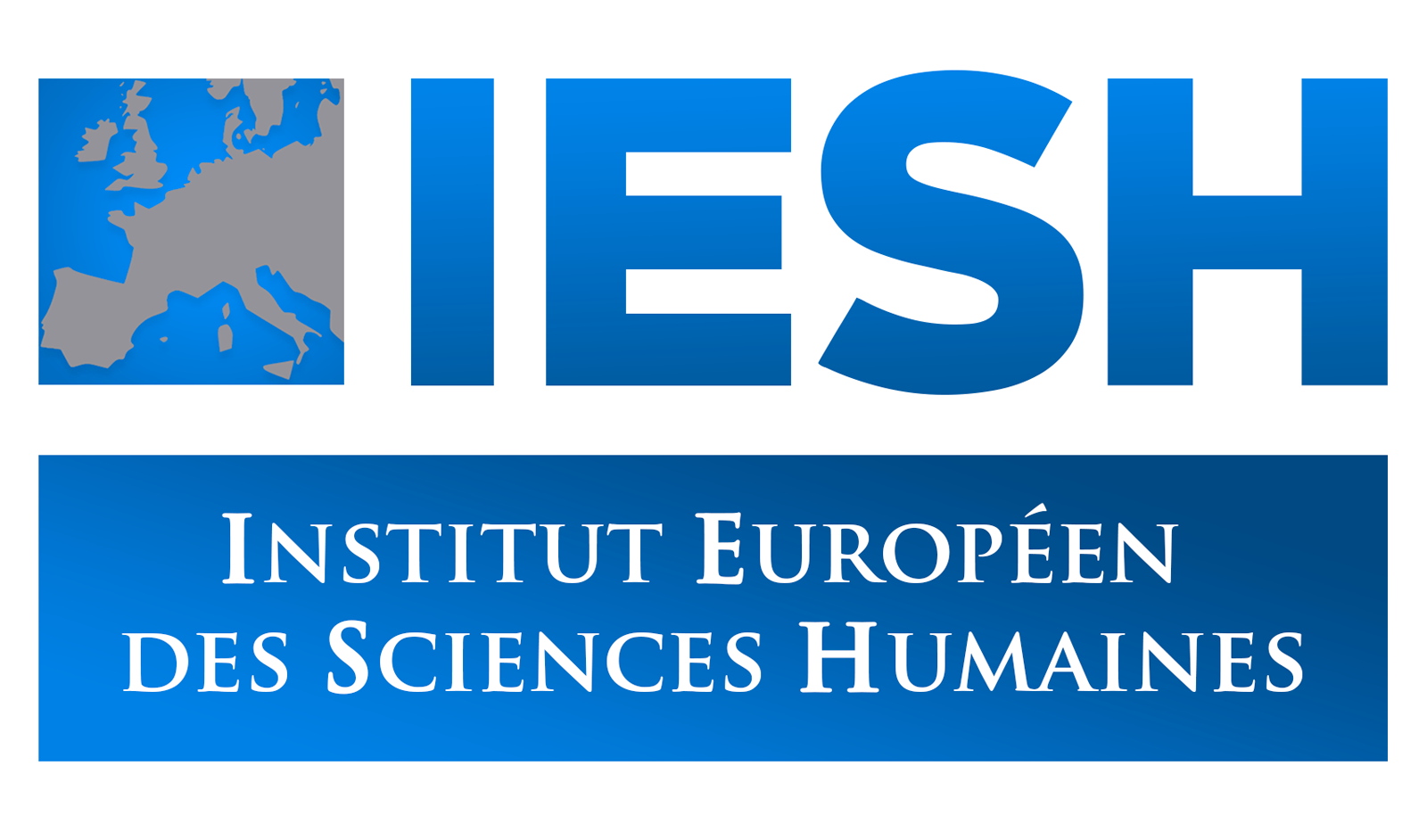Muslim Theology Department
The Department of Muslim Theology offers interested students a comprehensive training in theology and Muslim law, including a historical presentation of Islam, its doctrinal, cultural and cultic foundations, an exegetical approach to the Koranic text and other sources, and a solid grounding in Muslim law.
🛈
The 32-week school year is divided into 2 semesters, from September to mid-January and from mid-January to the end of June.

This body of knowledge, structured around Islamic studies, includes courses in law, the humanities and the comparative history of religions. Classical Arabic is an integral part of the program(taught in Arabic).
Two complementary training courses are available:
The first, at BAC+3 level, leads to a Diplôme d’Etudes Supérieures en Théologie et Droit musulman (DESTDM). This is a one-year course, accessible with a BAC +2 in Arabic (Cl level in Arabic required).
The second , at BAC+5 level, leads to a Diplôme d’Etudes Approfondies en Théologie et Droit musulman (DEATDM). This is a two-year course, accessible with a DESTDM (level Cl in Arabic required).
Skills and knowledge taught
Knowledge Theoretical
- In-depth knowledge of Islam and its foundations (creed, law…)
- In-depth knowledge of Arabic (pronunciation, grammar, syntax, vocabulary, etc.).
- Knowledge of Muslim cultures (civilization, history, literature, etc.).
- Raising awareness of intercultural and interfaith dialogue.
Know-how
- Knowing how to plan your work over time.
- Knowing how to work independently and in a team.
- Project management skills.
- Knowing how to adapt to different cultural contexts.
- Critical thinking skills.
Life- skills
- Acquire an in-depth, well-argued knowledge of the various Muslim religious disciplines, based on their conventional sources.
- Acquire the ability to distinguish, in the study of Muslim religious heritage, between fundamental principles and circumstantial traditions.
- Acquire the adaptability needed to combine Muslim religious knowledge with the specificities of the Western context, with a view to fostering enlightened understanding and practice.

Goals
- Acquire an in-depth, well-argued knowledge of the various Muslim religious disciplines, based on their conventional sources.
- Acquire the ability to distinguish, in the study of Muslim religious heritage, between fundamental principles and circumstantial traditions.
- Acquire the adaptability needed to combine Muslim religious knowledge with the specificities of the Western context, with a view to fostering enlightened understanding and practice.
- Acquire a fundamental knowledge (of issues and methods) of the human sciences, so as to benefit from its contributions to theological work, and develop a pedagogy of communication with the milieu of Islamology.
-
Acquire expertise in preaching, religious education and theological research.
Conditions of admission
- Be highly motivated
- Bachelor’s degree or equivalent
- Undertake to attend all classes regularly during the school year
- Pay the registration fees
- Admission by interview
Training details
Course schedule
| First year | Second year | Third year |
|---|---|---|
| The Holy Quran | The Holy Quran | The Holy Quran |
| Sciences of the Koran | Normative Koranic texts | Thematic exegeses |
| Hadith sciences | Muslim theological trends | Normative hadiths |
|
Muslim law 1 (Religious acts |
Muslim law 2 (Family law) |
Muslim law 3 (Transactions) |
| Muslim dogma 1 | Muslim dogma 2 | Judicial system and arbitration |
| The Life of the Prophet | History of religions | Normative adages |
| Aims of Muslim law | ||
| History of Islam | Inheritance law | Fundamentals of Muslim law 3 |
| Spirituality | General introduction to French law |
Fatwas and contemporary issues jurisprudence |
|
Arabic language (grammar and morphology) |
Legal foundations 2 |
Legal and international relations in Islam |
| Arabic literature | Islam and Europe | Western civilization and contemporary currents |
| Research methodology | Reforming movements | Educational psychology and pedagogy |
| Legal foundations 1 | Rules concerning the explanation of Islam |
Arabic language (grammar, morphology and rhetoric) |
| General introduction to sociology | Constitutional law and comparative institutions | |
| The logic | Final dissertation | |
|
Arabic language (grammar, morphology and rhetoric) |
||
| Developing the research project |
Exams
The examinations are carried out in the form of:
- continuous testing (oral exams, homework)
- a partial exam in February
- a final exam in June
- catch-up session in September
